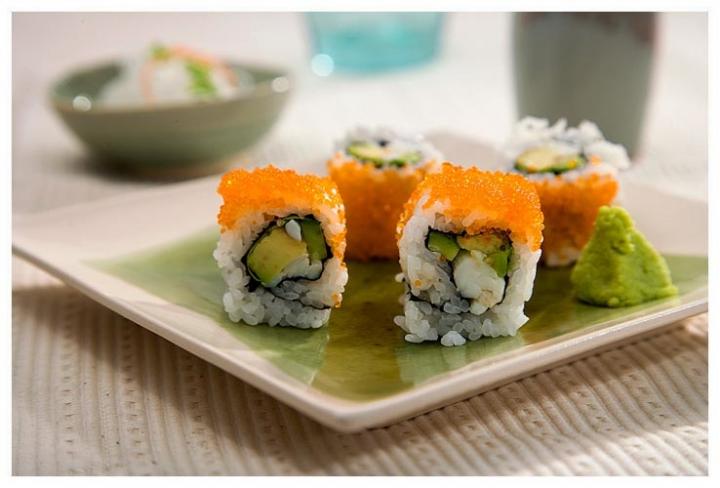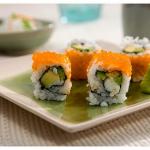Chinese knock-offs feed French sushi craze
Paris, December 2006 - Raw fish and rice is not exactly the cuisine you would expect to find on every street corner in Paris, but Japanese sushi is becoming almost as commonplace as France's beloved steak and chips. The only thing is: much of it is Chinese.
The number of Japanese restaurants in Paris has jumped about 30 percent in the last two years as the French turn away from cholesterol-laden fare in favour of healthier food and living.
But 90 percent of Japanese-style restaurants in France are thought to be Chinese-owned.
Never one to allow national pride to stand in the way of a good business opportunity, many Chinese restaurant owners have been converting their eateries overnight from sweet-and-sour pork to raw tuna and rice. And in the process, they have cut prices and put a lot of Japanese out of business.
Does it really matter who owns the restaurant, just so long as the food is good?
According to the Japanese External Trade Organisation (JETRO) which says that traditional Japanese cuisine, with its high-quality rice and varied raw fish, is getting lost in a myriad of inferior copies made up of wedges of fatty salmon slapped on balls of thick rice.
So in a bid to prevent their national dish from suffering the same fate as Italy's pizza, becoming so banal that it has little to do with Japan at all, JETRO is publishing a guide to authentic Japanese restaurants in France.
"I'm a little bit afraid that at several restaurants, many chefs are not trained at all. That raises some questions about the quality of the Japanese cuisine," director general of JETRO France, Tsuyoshi Nakai, told AFP.
"I just want the French people to be able to recognise the traditional Japanese restaurants, that they are different from other cuisine. It's not about a matter of good or bad," Nakai said.
The annual guide, which is due to be released in January, was compiled by an independent committee of a dozen Japanese food experts living in France.
They tested restaurants undercover and rated the establishments on a points system, based on criteria ranging from the authenticity of the food and alcohol to the decor, service and atmosphere.
Only 50 restaurants among the estimated 600 in Paris and its surrounding region clocked up enough number of points to make it into the 2007 guide.
The number of restaurants selected for the first edition, which also includes non-sushi restaurants, is limited as JETRO said it wanted to test the waters first before launching a more extensive version.
The guide will be given away for free in selected restaurants and hotels, Japanese cultural centres and tourist offices. It can also be downloaded from Jetro's website.
If the French guide takes off, it may be extended to other European countries and the United States.
Japanese restaurant owners, however, have doubts that the publication can swing the tide back in favour of true Nippons.
"I'm not sure at the moment. I'm just going to wait and see," said Hitoshi Saito, head chef at Meiji restaurant located just off the Champs Elysees, the French capital's famed central avenue.
Saito, who has been a sushi chef for 15 years, is convinced that the explosion of 'copy-cat' restaurants has tarnished the image of Japanese cuisine and that the newcomers' food is simply not up to scratch.
"I can tell you that it's completely different. It's up to you to compare the two but for we Japanese, we can tell the difference immediately."
While the Japanese may consider their food superior, Saito conceded the Chinese were far better at making the cash registers ring.
"The strength of the businessman is at play here. I think that the Chinese are much better at business than us," he said.
The Japanese are not the only ones unhappy with the transformation of so many Chinese restaurants.
"I went out for Chinese food yesterday evening but all the Chinese restaurants I know in my neighbourhood now all serve sushi," said Marie Hospital, who lives in eastern Paris. "In the end, I just went home."
* * * * *
 ThingsAsian
ThingsAsian















